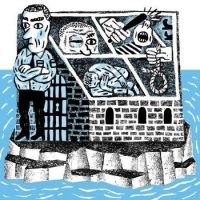
Why Is Turkey Accusing Me of Plotting a Coup?
On the night of July 15, elements of the Turkish military attempted a coup. It was a poorly organized effort that was defeated by a combination of people power, loyal units and serendipity. What made this failed effort remarkable was the putschists’ extreme brutality against civilians who resisted or happened to be in their way. Some 240 people were killed.
I was in Turkey at the time, leading a workshop on Buyukada, an island that is a 45-minute ferry ride from Istanbul. The workshop, which had been planned months earlier in conjunction with an Istanbul-based think tank, brought a small number of experts together to discuss Iran’s relations with its neighbors.… Seguir leyendo »











